In 2017, I read Jesmyn Ward’s novel Salvage the Bones, it was hurricane season in the US, and the news was full of the fearful anticipation of the destruction they would bring and we were already seeing how many small islands in the Caribbean had been devastated.
Salvage the Bones was set during the period just before and during Hurricane Katrina, one that would claim lives and livelihoods, wreaking havoc on New Orleans and the surrounding area. The family within which that story was set were already suffering poverty and the loss of the mother; they had little, yet what they had meant so much, creating a foreboding sense of much being at stake, it was thrilling and terrifying reading. You can read my review of it here.
 Sing, Unburied, Sing is set in the same Southern US community, putting us amidst a struggling mixed race family, a young black woman Leonie, who fell in love with Michael from a racist white family implicated in a tragedy that affected her family. In its telling, it traverses love, grief, terminal illness, addiction, prejudice, dysfunctional parenting, hope and survival, the effect this mix has on everyone touched by it, the painful and the poignant.
Sing, Unburied, Sing is set in the same Southern US community, putting us amidst a struggling mixed race family, a young black woman Leonie, who fell in love with Michael from a racist white family implicated in a tragedy that affected her family. In its telling, it traverses love, grief, terminal illness, addiction, prejudice, dysfunctional parenting, hope and survival, the effect this mix has on everyone touched by it, the painful and the poignant.
Leonie falls so quickly for Michael, she is blind to the bind she must endure, that of premature motherhood when she has barely experienced or indulged sufficiently the early infatuation of young love. As a result, she is forever seeking those moments, she is trapped in hedonistic romanticism, she has eyes only for Michael and is unable to embrace, and often rejects motherhood – or as her mother feared, perhaps she never had a maternal instinct at all.
…from the first moment I saw him walking across the grass to where I sat in the shadow of the school sign, he saw me. Saw past skin the colour of unmilked coffee, eyes black, lips the colour of plums, and saw me. Saw the walking wound I was, and came to be my balm.
She and her 13-year-old son Jojo and toddler Kayla, live with her parents, as Michael is in jail. Leonie gets word he is to be released and takes the children on a nightmare road trip to pick him up. Throughout most of the story Kayla is unwell, she is always in the arms of her brother, it is he that calms and reassures her.
When Leonie puts herself in danger, the apparition of her brother ‘Given’ appears. He is her conscience. He is not the only apparition hanging around the family. Jojo sees a boy who calls himself Richie, and Kayla can see him too. He wants Jojo to ask his grandfather to tell him the rest of the story he has partially told about him, of this boy Richie.
Restless unburied souls.
I want to tell the boy in the car this. Want to tell him how his pop tried to save me again and again, but he couldn’t.
The novel is narrated from three different points of view, Jojo, his mother Leonie and briefly the spectre of the young man Richie. Jojo is the most reliable and frequent narrator, even while he does have visions of this ghost-like figure. He is the quiet observer of everything, he adapts, he is responsible, he knows they are better off with his grandfather, he is loyal to his mother. He needs to take care of his sister, he has become both parents.
“Sometimes, late at night, when I’m listening to Pop search the dark, and Kayla’s snoring beside me, I think I understand Leonie. I think I now something about what she feels. That maybe I know a little bit about why she left after Mam died, why she slapped me, why she ran. I feel it in me, too. An itching in my hands. A kicking in my feet. A fluttering in the middle of my chest. An unsettling. Deeper. It turns me awake every time I feel myself slipping. It tosses me like a ball through the air. Around three a.m., it lets me drop, and I sleep.”
He accepts the presence of the ghost-like boy Richie, he is aware that it has some need to be fulfilled, though he is wary due to the role he has assumed, to protect his sister. Is it because their grandmother is dying that these restless souls are hanging around? It becomes one of the questions readers will ask themselves, and I found it interesting that I at no point interpreted this as a psychological problem for those who were able to see or sense these apparitions, they were like a puzzle to be solved, or a problem to be ignored, the fact that Jojo hears Richie validated their presence, while Leonie’s visions are easily attributed to her altered state.
Leonie is like a little girl lost, she has some awareness of what she should be doing, but little ability to push herself to do it. Her grief over her brother, her disappointment at her ability to have a connection with Michael’s racist family, her disappointment in herself lead to apathy, to knowing, but lacking the will to act on her better judgement, of which we see glimmers. She isn’t horrid or badly intentioned, she is seeking escape and Michael both reminds her of her pain and is where, and with whom she wishes to bury herself, to flee it.
 There is a reference to her novel Salvage The Bones, as the family return from their road trip, they pass a young couple walking a dog, it is the brother and sister, Skeetah and Eschelle, from the neighbourhood, protagonists of that earlier novel. I was curious to know if the dog was related to China, an unresolved thread left hanging from her earlier novel. I was delighted to encounter them.
There is a reference to her novel Salvage The Bones, as the family return from their road trip, they pass a young couple walking a dog, it is the brother and sister, Skeetah and Eschelle, from the neighbourhood, protagonists of that earlier novel. I was curious to know if the dog was related to China, an unresolved thread left hanging from her earlier novel. I was delighted to encounter them.
In many ways Salvage The Bones was the more straight forward story, Esch (in Salvage) and Jojo (in Sing) are similar characters, coming-of-age and surviving a dysfunctional family. Jojo has the stability and wisdom of his grandfather to ground him, and the care of his sister prevents him from becoming too focused on his own situation. There is hope. However, the supernatural element, which is a lot more than a mere splash of magic realism, makes this a more complex narrative that stretches the reader’s imagination much further to make sense of what is happening, a reminder of dangers, of threats, of the precariousness of young, black lives.
It’s challenging to spend the week there, navigating the lives of this family that seems to have little hope and while Jojo seems to be a sensible child, his interactions with the dead suggest life will continue to challenge him.
It reminded me a little of the magical presence used by some Caribbean authors I enjoy, where ancestors often bring a message or wisdom to the one who is able to sense their presence.
It’s a book that is often uncomfortable to read, but challenges the reader to think deeper than what they encounter on the surface, to ponder the meaning of some of those scenes, especially the end. I think it is a book that is all the more enjoyable for the thoughts it provokes on finishing it, for the discussion it invites you to have with other readers, and this for me is where its brilliance lies, it normalises the mystical, using it to make the reader think beyond the actual events of the story, to question how the lives of others continue to impact the lives of their descendants.
It demonstrates the effect on the young of the tragedies of the past and the need for resolution, for those unburied, restless souls to be freed from their pain, so that the living can be free of and unencumbered by it too.
Both Jesmyn Ward’s books Salvage the Bones (2011) and Sing, Unburied, Sing (2017) won the prestigious National Book Award in the US, an award that always highlights excellent fiction and nonfiction being published in the US and they have just announced this year that they will now include a fifth National Book Award for translated works of fiction and nonfiction published in the U.S.
Listen below to Jesmyn reading her acceptance speech and speaking to those who question why they should read her books, about the universality of the stories she writes.
“As a lifelong reader, I fell in love with classic “odyssey” novels early on—especially As I Lay Dying, The Grapes of Wrath, and The Adventures of Huckleberry Finn. Yet I always felt somehow outside these books. This novel responds to that tradition, reflecting the realities of being black and poor in the South, the realities of my people and my community. …My characters face the terrible consequences of racism and poverty wherever they go, but they also have an incredible, tender, transformative love for each other. I wanted to acknowledge all of the forces that work against us and our ability to survive despite all.” Jesmyn Ward
Note: This book was an ARC (Advance Reader Copy) kindly provided by the publisher via Netgalley.

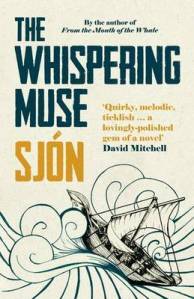 The Whispering Muse by Icelandic poet, songwriter and novelist Sjón, known for his collaborations with Björk and winner of the Nordic Council Literary Prize (equivalent of the Man Booker Prize) for this novel, was the first book I chose to read for the New year.
The Whispering Muse by Icelandic poet, songwriter and novelist Sjón, known for his collaborations with Björk and winner of the Nordic Council Literary Prize (equivalent of the Man Booker Prize) for this novel, was the first book I chose to read for the New year.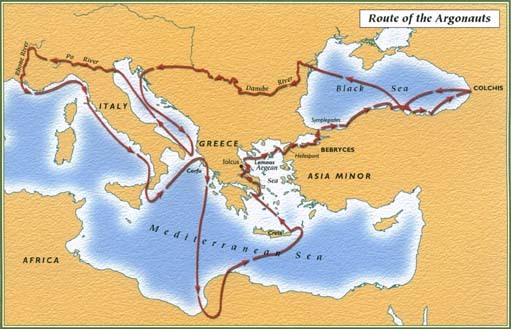





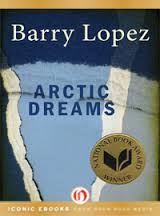
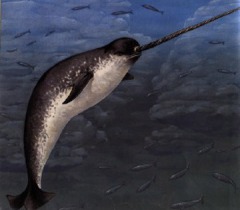

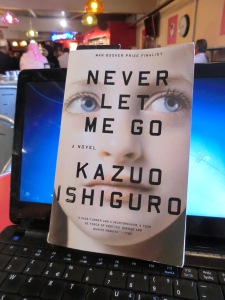



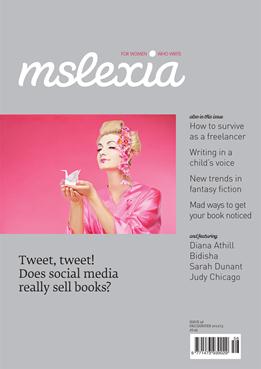 I’ve been subscribing to
I’ve been subscribing to 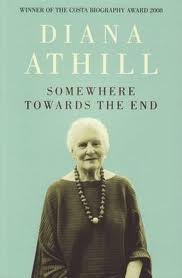
 review. Something for everyone.
review. Something for everyone.


 linked at the end of this post.
linked at the end of this post.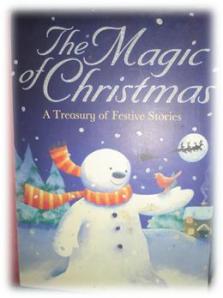
 Shelley the tortoise disagrees, but discovers she can’t break the ice to get food like a duck, keep warm by running around like a dog, crawl into a nice warm house like a cat, or fly off home like a bird.
Shelley the tortoise disagrees, but discovers she can’t break the ice to get food like a duck, keep warm by running around like a dog, crawl into a nice warm house like a cat, or fly off home like a bird.

